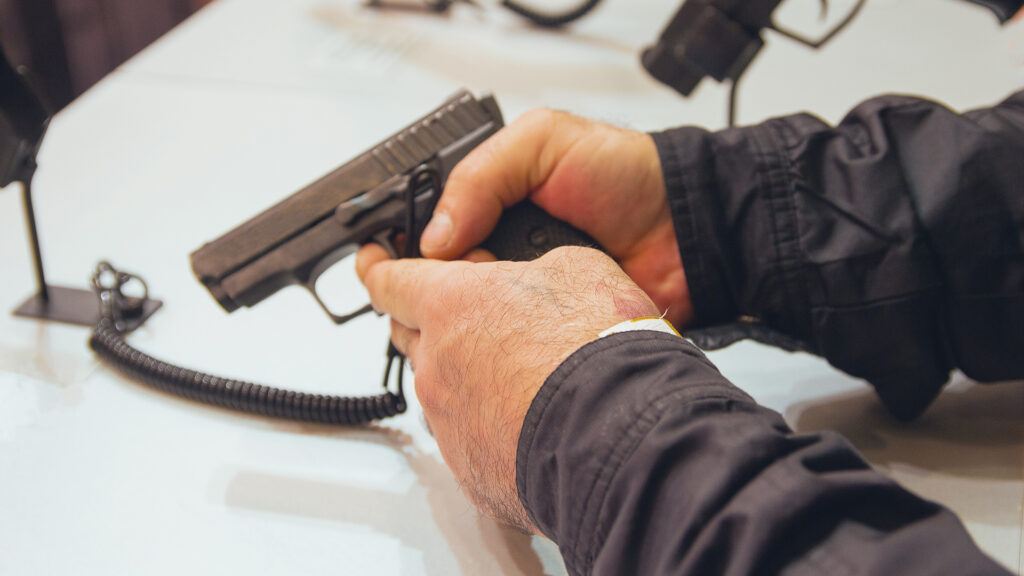
On March 20, 2025, the U.S. Department of Justice (DOJ) announced a major shift for gun rights restoration, that brings renewed hope for individuals with past convictions. The DOJ published an interim final rule titled “Withdrawing the Attorney General’s Delegation of Authority”, offering a rare opportunity for those who were federally prohibited from owning firearms to petition for the return of their Second Amendment rights. This pivotal decision could be a turning point for many, offering a path to reclaim an important part of their freedom after serving their time and turning their lives around.
Presidential Push to Secure Your Second Amendment Rights
This decision follows a February executive order issued by President Trump, directing a comprehensive review of the nation’s gun restrictions to “assess any ongoing infringements.” One key outcome of this review is the DOJ’s effort to reinstate a provision of federal law that hasn’t been used since 1992. If fully implemented, the new rule could give individuals with federal convictions the chance to request a review and potentially have their firearm rights restored.
Why the Need to Fix the Federal Restoration Process
The new rule submitted last week combats a 1992 rider attached to the 1968 Gun Control Act that has effectively stunted that ATF’s ability to efficiently manage firearm restoration requests for decades. Under this Act, the Bureau of Alcohol, Tobacco, Firearms and Explosives (ATF) had the authority to review and restore firearm rights on a case-by-case basis. However, in 1992, Congress passed an appropriations rider that defunded ATF’s administration of the program. Concerns arose about the resources ATF diverted from its other law enforcement duties to process these petitions, along with pressure from anti-gun groups claiming that rights restorations posed a public safety risk. As a result, the rider has been renewed every year since, effectively closing the door on federal gun rights restoration for decades.
Under the Trump administration, a new interpretation emerged: the Attorney General could assign this responsibility to another DOJ component not subject to the funding restrictions, like the Office of the Pardon Attorney, for example.
A Fair Path to Federal Gun Rights Restoration
For decades, federally prohibited persons — individuals who have lost their gun rights due to certain convictions — had no clear path to regain those rights at the federal level. The DOJ’s new rule directly seeks to resolve this issue, providing a long-awaited avenue for those who have served their time and demonstrated rehabilitation to petition for the restoration of their Second Amendment rights. This policy shift offers renewed hope for individuals who may have been convicted of non-violent offenses or made mistakes in the past but have since turned their lives around. Now, these individuals could potentially have their cases reviewed and their firearm rights reinstated through a formal process.
Learn What it Takes to Restore Your Second Amendment Rights.
Upcoming Firearm Rights Legislation to Watch
In addition to the DOJ’s new rule, the House Judiciary Committee is considering two significant bills related to gun rights as part of a legislative markup:
- H.R. 38, the “Constitutional Concealed Carry Reciprocity Act”: This bill would allow concealed carry permits to be recognized across state lines, similar to driver’s licenses.
- H.R. 2184, the “Firearm Due Process Protection Act”: This bill aims to strengthen the legal process for individuals seeking to challenge wrongful firearm prohibitions.
Encouraging Future for Protecting Your Second Amendment Rights
These developments highlight a renewed focus by this administration in the protection of your Second Amendment rights. As these bills move forward and the DOJ’s new rule takes effect, many will be watching closely to see how these changes may improve the fair restoration of your firearm rights.
At The Law Offices of Barton Morris, we stay at the forefront of legal changes that impact gun rights and provide expert legal guidance for those seeking to restore their Second Amendment rights. If you have questions about these developments or want to explore your own eligibility for gun rights restoration, contact the Law Offices of Barton Morris today.
Read More About Michigan Firearm Rights
- For more information on how we help you with firearm rights restoration.
- Michigan’s Red Flag Law — A Threat to Your Second Amendment Rights
- Learn about how Michigan’s Clean Slate Law may affect your firearm rights.
- Understand Your Concealed Carry Rights After a Domestic Violence Conviction
- Michigan Firearm Restoration Proceedings
- What if a Felon Wants to Carry a Firearm to Hunt?

